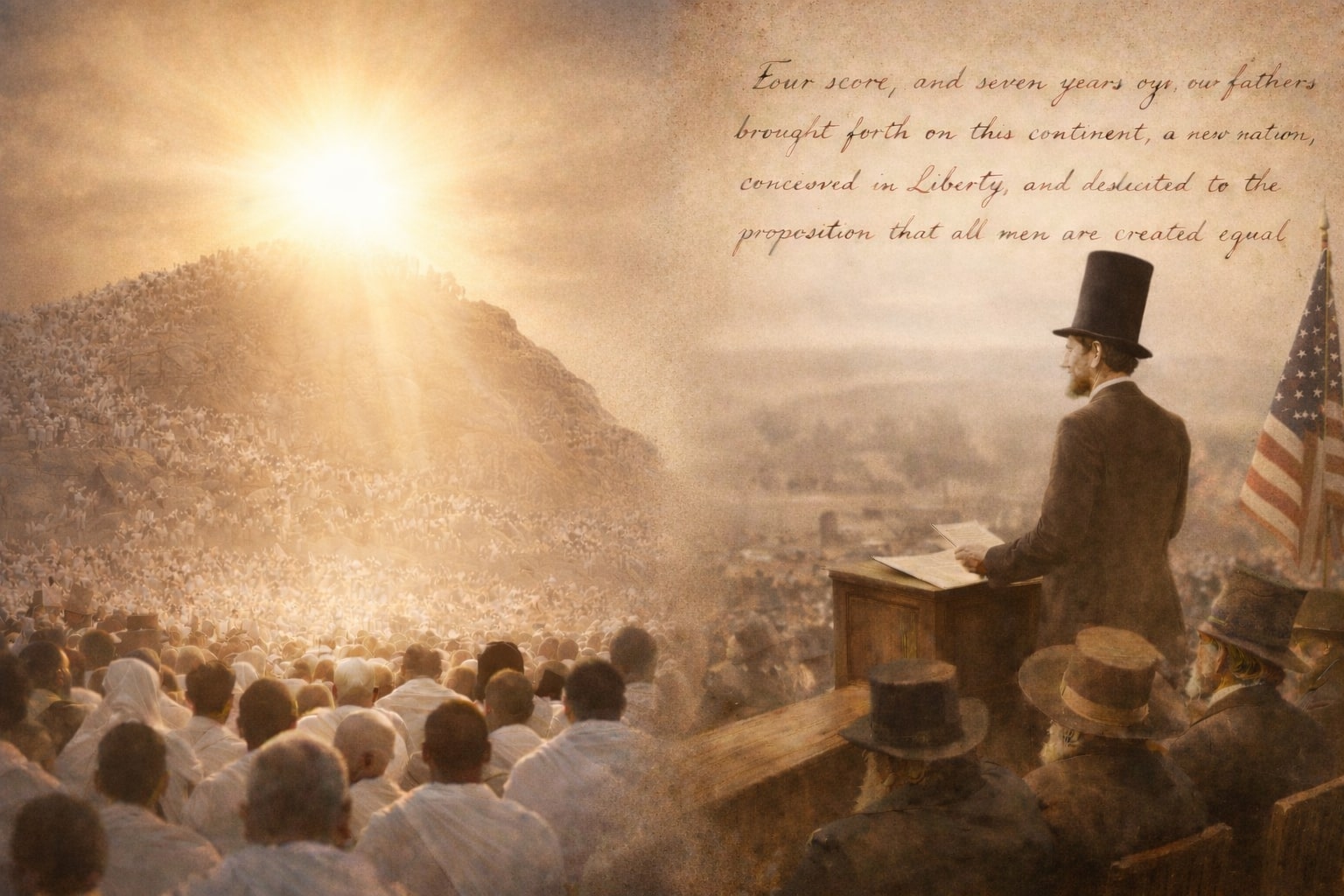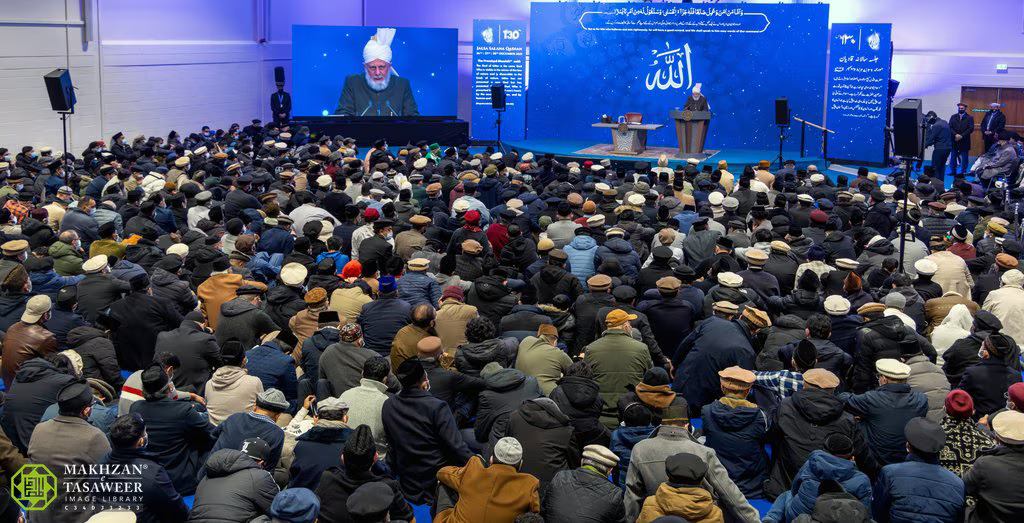SALEEQ AHMAD NAIK
Society is a cornerstone of human life, underpinning our collective existence. One of the hallmarks of a thriving society is its ability to stay united and avoid fragmentation. Humans, much like other animals, exhibit a remarkable capacity for maintaining group cohesion, cooperating within their communities, and functioning under what we call a ‘social system’. This system governs how status and authority are allocated, and how freedoms and restrictions are negotiated within society.
However, within any social system, differences and conflicts naturally arise, owing to the existence of diverse sections of people in it, warranting a framework that ensures harmonious coexistence and addresses the needs of all members.
Islamic teachings related to the establishment and functioning of a society offer such a framework, providing essential principles for living in a society, addressing the political, social, economic, cultural, and religious aspects of human life. These teachings stand as a clear indication of its completeness, and bear testimony to its perfection.
Equality of all people
Islam teaches that the members of a society are united by a strong bond of humanity, with no inherent factors creating any discrimination among them. Allah says:
“Indeed, We have created you from male and female and made you peoples and tribes that you may know one another. Indeed, the most noble of you in the sight of Allah is the most righteous of you. Indeed, Allah is Knowing and Acquainted.”[1]
The verse makes it clear that human dignity and honour are based on righteousness, not on colour or lineage. Social divisions are above distinctions of race and ethnicity. That is to say, all humans are equal, with equal rights and duties. Differences in race, ethnicity, and tribe do not affect human status, nor are such distinctions standards of superiority.
This comprehensive perspective on human equality is beautifully illustrated in the Farewell Sermon of the Holy Prophetsa, where he said:
“All mankind is descended from Adam and Eve. An Arab has no superiority over a non-Arab, nor does a non-Arab have any superiority over an Arab; a white has no superiority over a black, nor does a black have any superiority over a white; none have superiority over another except by piety and good action.”[2]
Thus, Islam establishes equality based on humanity and distributes results according to effort and diligence. It provides teachings for a society that recognises and includes cultural, civilisational, social, and economic divisions, all the while emphasising unity and justice.
Freedom of religion
Islam presents unparalleled teachings with regard to religious tolerance and freedom of conscience. Allah says:
“There shall be no compulsion in religion. Surely, right has become distinct from wrong.”[3]
The principle of not enforcing religion is based on the fact that Allah, the Creator, does not impose religion upon His creation. Thus, humans should also not enforce religion on others. Allah says:
“And if thy Lord had enforced His will, surely, all who are on the earth would have believed together. Wilt thou, then, force men to become believers?”[4]
Hence, Islam offers complete freedom of choice in accepting or rejecting a faith, as it is stated:
“Wherefore let him who will, believe, and let him who will, disbelieve.”[5]
Islam’s freedom of religion is not confined to a mere absence of coercing others to accept it, but also to identify with any faith of one’s choice.
Freedom to profess: According to Islamic teachings, any person should have the right to openly profess their faith, without any fear of coercive interference. The Quran states:
“For you your religion, and for me my religion.”[6]
Freedom to practise: Islam guarantees the right of people to observe their faith. Hence, Islam ensures the protection of places of worship of all religions:
“And if Allah did not repel some men by means of others, there would surely have been pulled down cloisters and churches and synagogues and mosques, wherein the name of Allah is oft commemorated.”[7]
Freedom to preach: In Islam, every person is granted freedom to preach their faith. Hence, the Holy Quran repeatedly urges the people of other religions to present evidence in support their claims. It states:
“Say, ‘Produce your proof, if you are truthful.’”[8]
Justice and kindness towards non-Muslims
Islam enjoins justice and kind treatment to every people, regardless of their race or religion. The Quran exhorts believers to observe justice, even it be against their loved ones or themselves. It says:
“O ye who believe! be strict in observing justice, and be witnesses for Allah, even though it be against yourselves or against parents and kindred. Whether he be rich or poor, Allah is more regardful of them both than you are. Therefore follow not low desires so that you may be able to act equitably. And if you conceal the truth or evade it, then remember that Allah is well aware of what you do.”[9]
Allah forbids injustice towards any nation even when they commit transgression, as stated in the Holy Quran:
“And let not a people’s enmity incite you to act otherwise than with justice. Be always just, that is nearer to righteousness.”[10]
As per the Quranic teaching, any people who do not engage in hostility or war against Muslims are to be treated with kindness and fairness:
“Allah forbids you not, respecting those who have not fought against you on account of your religion, and who have not driven you forth from your homes, that you be kind to them and act equitably towards them; surely Allah loves those who are equitable.”[11]
These values perfectly materialised during the lifetime of the Holy Prophetsa. For instance, when Asma bint Abu Bakrra was asked whether she could show kindness to her idolatrous mother who came from Mecca to visit her in Medina, the Prophet Muhammadsa affirmed that she could, showing the importance of maintaining familial ties and respect.[12]
Similarly, once, a Jewish funeral was passing through Medina that the Holy Prophetsa stood up in respect. When asked why he did so, he replied, “Was he not a soul? Was he not human?”[13]
Likewise, it is narrated that Prophet Muhammadsa never ignored a dead body and always ensured it was buried, regardless of whether the deceased was a Muslim or a non-Muslim.”[14]
These references vividly demonstrate the exemplary model of the Holy Prophetsa with regard to treating all with dignity and respect regardless of their faith.
The Constitution of Medina
These values were not mere theories. Rather, they were fully realised in practice during the lifetime of the Holy Prophetsa. A very good example of this was the constitution of Medina—a peace treaty and alliance agreement that Prophet Muhammadsa established with the Jews and the idolatrous tribes of Medina. This agreement represents a significant and historic chapter of the life of the Holy Prophetsa where he granted complete religious and cultural freedom to all people living in Medinian society.
This document—the first of its kind—is a masterpiece of human rights, equality, and freedom of conscience and religion. It encapsulates the essence of Quranic teachings and the Sunnah (blessed model) of the Holy Prophetsa. The clauses in this charter[15] with regard to creating a pluralistic society include:
Political unity: The agreement stated that the Muslims of Medina—both the Emigrants (Muhajirun) and the Helpers (Ansar), and the Jews would be considered ‘one nation’.
Religious freedom: A fundamental condition of this agreement was that everyone would have complete religious freedom. As a result of this agreement, they would be granted certain rights and bear certain responsibilities.
Defence alliance: The Constitution also established a pact of mutual defence among the signatories against external threats.
Mutual goodwill: The agreement specified that both parties would act in goodwill towards each other and would not harm each other.
In short, the Constitution was a model of coexistence that emphasised equality, human rights, and justice among its citizens, regardless of their religion. It remains a profound example of peaceful coexistence and mutual respect among diverse religious communities.
It also serves as an outstanding proof that Islam’s teachings provide essential guidelines for creating a harmonious and prosperous society. In our increasingly diverse world, these principles impart invaluable lessons in embracing differences while promoting peace and unity.
END NOTES
[1] Holy Quran 49:14
[2] Sahih al-Bukhari, Kitab al-Adab (The Book on Good Manners)
[3] Holy Quran 2:257
[4] Holy Quran 10:100
[5] Holy Quran 18:30
[6] Holy Quran 109:7
[7] Holy Quran 22:40
[8] Holy Quran 2:112
[9] Holy Quran 4:136
[10] Holy Quran 5:9
[11] Holy Quran 60:9
[12] Sahih al-Bukhari, Kitab al-Adab (The Book on Good Manners)
[13] Sahih al-Bukhari, Kitab al-Janaiz (The Book on Funerals)
[14] Mustadrak al-Hakim, v. 1, p. 371
[15] Al-Sirah Al-Nabawiyyah, by Ibn Hisham, v.2 pp. 143-146, Dar al-Kitab al-Arabi, Beirut, third edition (1990)













3 Comments
Yawar Nazir · November 18, 2024 at 5:11 pm
Mashallah
Azeem Ahmed Jalthar · November 19, 2024 at 4:13 am
The supreme happiness of life consists in the conviction that one is loved.
Rawahuddin Khan · November 20, 2024 at 3:17 am
Mashallah, very good article with authentic reference frm Quran, Hadith & Sunnah to present to Non Muslims.